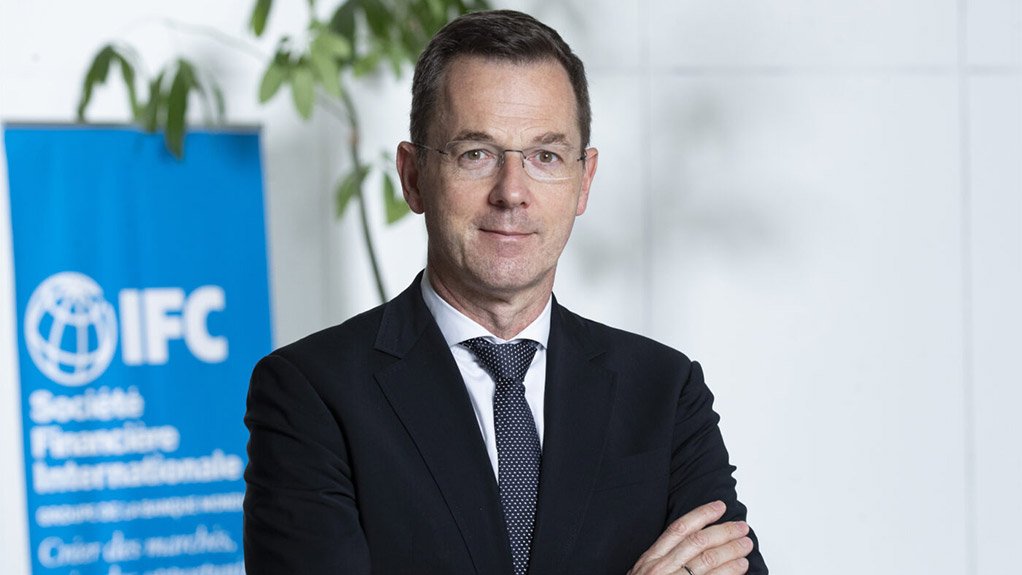The International Finance Corporation (IFC) has confirmed that its stands ready to support South Africa’s efforts to facilitate private sector participation in the expansion of the country’s electricity grid.
IFC Africa VP Sérgio Pimenta told Engineering News during his recent visit to South Africa that the World Bank Group agency had already been providing advice to government on possible models for deploying independent transmission projects to help address grid-related backlogs.
Eskom’s National Transmission Company South Africa has indicated that 14 218 km of new powerlines, 170 transformers (105 865 MVA), alongside 40 capacitors (2 700 MVar) and 52 reactors (14 713 MVar) are required by 2032 to connect new renewables capacity, much of which will arise in areas where there is currently limited grid in place.
Government is, thus, looking to supplement NTCSA’s own build programme with private grid projects and moves are under way to set up a procurement agency at the Development Bank of Southern Africa.
The next step, Pimenta told Engineering News, was to begin implementing such projects and he reported that the IFC was ready to provide direct funding to such projects as well as to mobilise private funding for grid-related investment.
“The needs are very significant and no institution by itself will be able to cover them,” he said, estimating that South Africa needed to invest some $10-billion to expand and modernise its grid.
The IFC’s current committed investment portfolio in South Africa stands at $3.7-billion across 49 clients - its largest in Africa. But Pimenta confirmed that the development financier was keen to both grow and diversify the portfolio, including by funding independent transmission projects.
For every dollar of IFC invested, he was also confident it could help mobilise a further $5-billion from long-term investors, such as pension funds, sovereign funds and other institutional investors.
“That's one of the roles we can play in addition to providing our own financing.”
Pimenta met with Electricity and Energy Minister Dr Kgosientsho Ramokgopa during his visit, which took place from August 21 to 23, and he told Engineering News that their discussions centred on the pragmatic steps required to facilitate private investment into the grid.
He noted that the IFC had already supported similar projects in other parts of the world, including in Côte d'Ivoire, and argued that the main benefits lay in the efficiency that private companies brought to delivering such projects and in securing the necessary funding.
“As is the case in many other countries, we are not advocating 100% private-sector, or 100% public-sector solutions.
“We are advocating for a pragmatic solution where everyone contributes,” he said, adding that there were also World Bank financial products to help derisk the projects in a context where there was limited fiscal space to provide guarantees.
EMAIL THIS ARTICLE SAVE THIS ARTICLE ARTICLE ENQUIRY
To subscribe email subscriptions@creamermedia.co.za or click here
To advertise email advertising@creamermedia.co.za or click here











